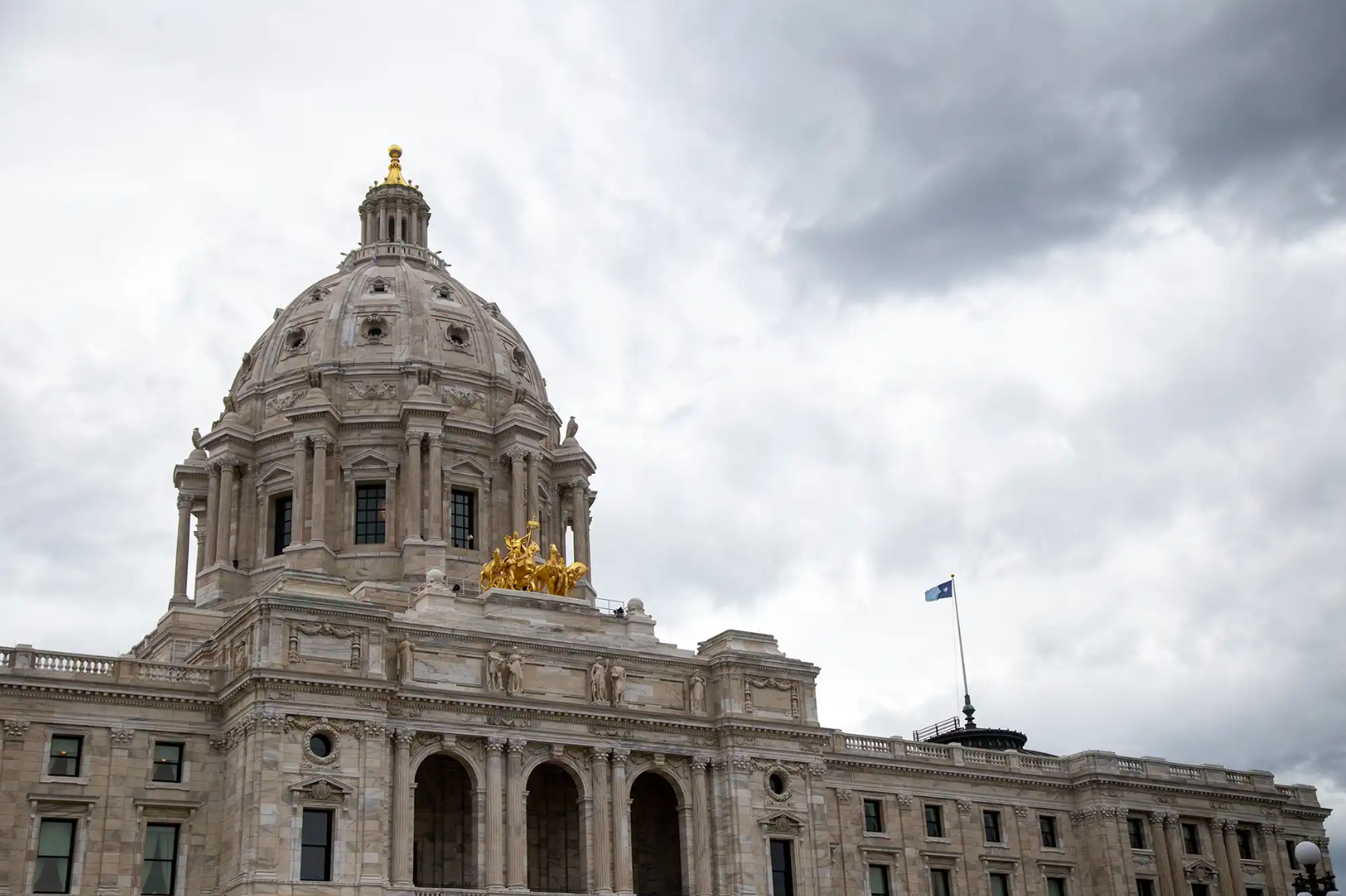An unprecedented deadlock greets the Minnesota Legislature as it commences its session, with Democrats threatening a boycott over Republicans’ temporary majority. Political tensions escalate as both parties grapple for control amid election challenges and seat uncertainties.
Five key questions as the Minnesota Legislature starts its session

Key Takeaways:
- Democrats and Republicans are deadlocked in the Minnesota House.
- Democrats threaten a boycott over Republicans’ temporary majority.
- Republicans plan to elect leadership based on a one-vote advantage.
- Secretary of State asserts quorum requires 68 members, but Republicans disagree.
- The Senate reaches a power-sharing agreement amid its own split.
Unprecedented Deadlock as Session Begins
The Minnesota Legislature on Tuesday began its five-month session in an unusual position: a deadlock right from the outset rather than a buildup toward it. Political tensions have escalated as both Democrats and Republicans grapple for control in a House evenly split between the two parties.
Democrats Threaten Boycott Over GOP Moves
House Democrats have announced plans to work from their districts rather than appear at the Capitol. They take issue with Republicans’ efforts to elect one of their own as speaker and assign committee chair positions based on a temporary one-vote advantage.
“What we think is really kind of a ridiculous position is to assert that, because for two weeks, they will have a one-seat advantage, that they should control the entire chamber for two years,” said House Democratic Leader Melissa Hortman, DFL-Brooklyn Park. “I think that that is untenable.”
She added, “It’s not a place we would like to go. But we are really forced into this position by Republicans threatening to unseat a duly-elected member.”
Democrats held a secret swearing-in ceremony over the weekend to take their oaths of office, a move Republicans dispute.
Republicans Aim to Capitalize on Temporary Majority
Republicans plan to proceed with electing GOP Leader Lisa Demuth, R-Cold Spring, as House speaker and placing fellow Republicans in committee chair positions.
“We are not at a tie right now, and the actions and the way that the Democrats have shown that they will not work with us, regardless of whether or not they like the circumstances, really brings into question how serious they were going to work with us all the way through on a power-sharing [deal] or these antics that we’ve seen,” Demuth stated.
The GOP insists they have the authority to act with 67 members, despite disputes over quorum requirements.
Quorum Dispute Heightens Tensions
Secretary of State Steve Simon, a Democrat, informed GOP leaders that 68 votes are needed in the chamber to conduct formal business, citing the necessity for a quorum. Republicans contest this assessment, accusing Simon of collaborating with his party to halt the House’s organization.
“It appears that other members of your political party will engage in lawless behavior to thwart the lawful organization of the Minnesota House,” GOP leaders wrote in a letter to Simon. “You need not make yourself an accomplice in their shameful effort.”
Simon responded, maintaining his stance that without 68 members, the House cannot proceed with actions such as electing leaders or other motions.
Election Challenges Create Uncertainty
The evenly split House stems from voters electing 67 Democrats and 67 Republicans. However, Democrats lost a seat due to a residency challenge, and questions remain over seating DFL Rep. Brad Tabke of Shakopee, who won his seat by 14 votes but faces a legal challenge from Republicans seeking a new election.
Republicans argue that missing ballots cloud the outcome, while Democrats contend it is mathematically impossible for the additional ballots to change the result. Six voters whose ballots weren’t counted testified they voted for Tabke.
Senate Reaches Power-Sharing Agreement
In contrast to the House, Minnesota Senate leaders announced a power-sharing deal due to their own 33-33 split. Republicans and Democrats will share presiding officer roles and committee chair positions, with the exact rotation to be determined. This arrangement may be revisited after a special election for a Minneapolis area seat later this month, which could break the tie.
Despite potential changes, top lawmakers indicated that procedural rules adopted early in the session would remain in place for the year.
Legislative Priorities Amidst Deadlock
Lawmakers face pressing tasks, most notably passing a two-year budget before July 1 to avert a government shutdown. They may also address a public construction finance bill left unfinished last year and consider policy bills, including adjustments to Minnesota’s legal cannabis marketplace and the upcoming paid family and medical leave program set to launch next year.
The Legislature must adjourn its session by May 19, but a special session could be convened if they cannot complete their work on time.
The Road Ahead
As the Minnesota Legislature grapples with internal conflicts and procedural disputes, the ability of lawmakers to effectively govern remains uncertain. The unfolding situation will test the resilience of the state’s legislative processes and the willingness of both parties to find common ground in the face of pressing deadlines and responsibilities.











